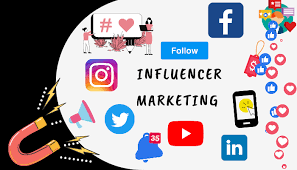In today’s hyper-connected world, digital marketing has rate card influencer malaysia become the backbone of modern business strategies. Whether you’re a multinational corporation or a small startup, the ability to effectively harness digital marketing can mean the difference between thriving and merely surviving. This article explores the essence of digital marketing, its core strategies, and how businesses can capitalize on its transformative power.
What is Digital Marketing?
Digital marketing refers to the use of digital channels such as search engines, social media, email, websites, and mobile apps to promote products or services. Unlike traditional marketing, which relies on physical mediums like print and broadcast, digital marketing leverages the internet and technology to engage with audiences in a highly targeted, measurable, and interactive way.
Why Digital Marketing Matters
- Wider Reach: With over 5 billion internet users worldwide, digital marketing enables businesses to reach global audiences without the geographic limitations of traditional methods.
- Cost-Effectiveness: Compared to TV ads or print campaigns, digital marketing offers scalable solutions that can fit various budgets.
- Measurable Results: Tools like Google Analytics and social media insights provide real-time data, allowing businesses to measure ROI and refine strategies.
- Personalization: Using data analytics, businesses can create personalized experiences, tailoring content and offers to individual preferences.
Core Pillars of Digital Marketing
Digital marketing encompasses a variety of strategies and channels. Here are the key pillars:
- Search Engine Optimization (SEO):
SEO is the practice of optimizing your website to rank higher on search engine results pages (SERPs). A higher rank increases visibility, driving organic traffic to your site. This involves on-page techniques (like keyword optimization and content creation) and off-page efforts (like backlinks and social signals). - Content Marketing:
Content is king in the digital realm. High-quality blogs, videos, infographics, and podcasts help educate, inform, and engage your audience. Effective content marketing positions your brand as an industry leader and fosters trust among potential customers. - Social Media Marketing:
Platforms like Facebook, Instagram, LinkedIn, and TikTok allow businesses to connect with their audience on a personal level. By creating engaging posts, running targeted ads, and interacting with followers, brands can build strong relationships and drive sales. - Pay-Per-Click Advertising (PPC):
PPC campaigns, such as Google Ads or Facebook Ads, let businesses pay for prime real estate on digital platforms. This is especially effective for driving immediate traffic and conversions. - Email Marketing:
Email remains one of the most effective ways to nurture leads and build customer loyalty. Personalized email campaigns, newsletters, and offers help businesses maintain a consistent relationship with their audience. - Affiliate Marketing:
In this model, businesses collaborate with affiliates (publishers or influencers) who promote their products in exchange for a commission. It’s a cost-effective way to expand reach and boost sales. - Mobile Marketing:
With mobile devices accounting for over half of all web traffic, optimizing campaigns for mobile users is essential. This includes responsive web design, SMS marketing, and mobile app promotions.
Trends Shaping Digital Marketing in 2024
The digital marketing landscape is constantly evolving. Staying ahead means adapting to the latest trends:
- AI and Automation: Tools like ChatGPT and predictive analytics are revolutionizing customer interaction and campaign management. Automation allows businesses to streamline processes and focus on strategy.
- Voice Search Optimization: With the rise of smart assistants like Alexa and Siri, optimizing content for voice search is crucial for future-proofing your SEO strategy.
- Video Marketing: Short-form videos on platforms like TikTok and YouTube Shorts are gaining traction as consumers prefer bite-sized, engaging content.
- Sustainability Messaging: Modern consumers are drawn to brands with a strong commitment to sustainability and ethical practices. Transparent, values-driven marketing is becoming a key differentiator.
- First-Party Data: As privacy regulations tighten, businesses are shifting from third-party cookies to first-party data collection. This means prioritizing direct customer interactions through surveys, email sign-ups, and loyalty programs.
Building a Winning Digital Marketing Strategy
A successful digital marketing strategy involves a mix of creativity, data analysis, and adaptability. Here’s how to get started:
- Define Goals: Whether it’s increasing brand awareness, generating leads, or boosting sales, clear objectives will shape your campaigns.
- Know Your Audience: Use buyer personas to understand your audience’s needs, preferences, and pain points.
- Choose the Right Channels: Focus on platforms where your target audience is most active.
- Create Engaging Content: Use storytelling, visuals, and value-driven messaging to capture attention.
- Monitor and Optimize: Use analytics tools to measure campaign performance and refine your strategies based on data.
Conclusion
Digital marketing is no longer optional—it’s a necessity. In a world dominated by screens and smart devices, businesses that invest in digital marketing are better positioned to connect with customers, outpace competitors, and achieve long-term growth. By embracing its strategies and keeping an eye on emerging trends, your brand can unlock new opportunities in the ever-expanding digital ecosystem.

